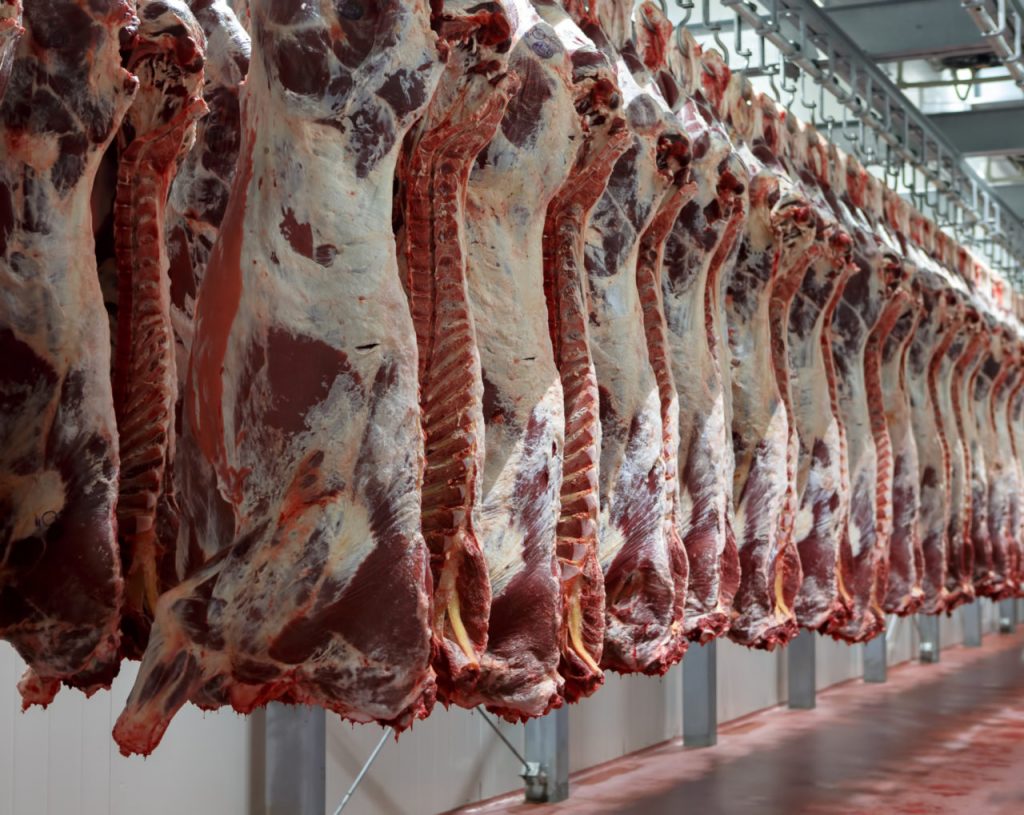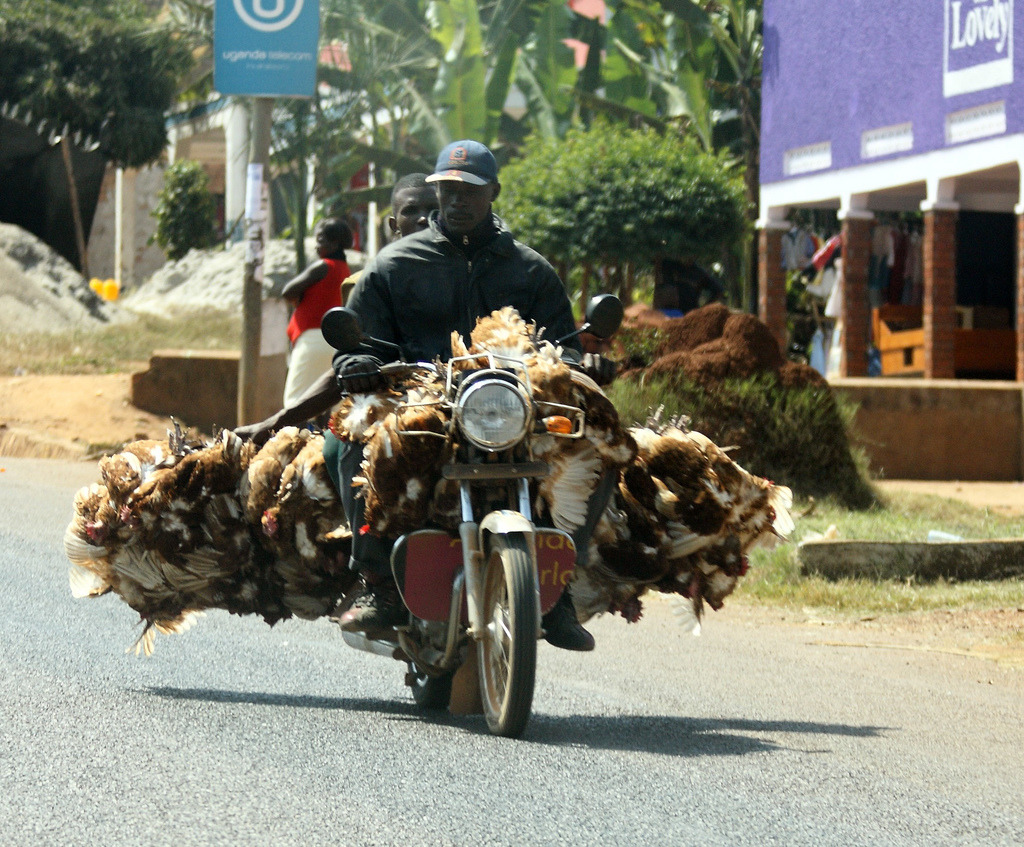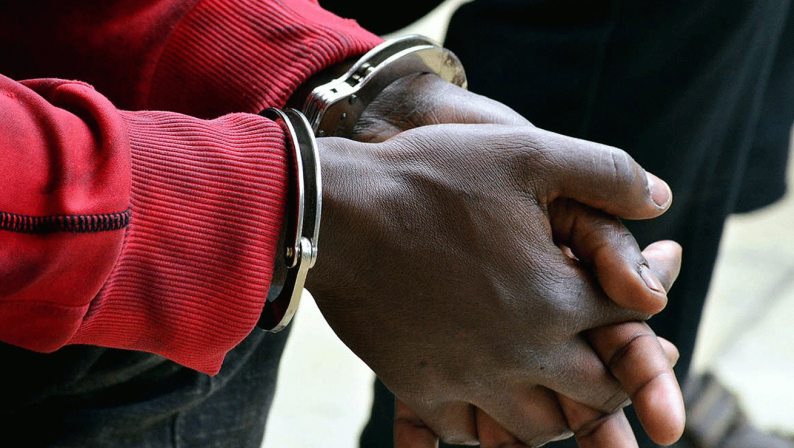It is not uncommon to encounter chicken and animals – especially goats – being transported in overloaded vehicles or boda bodas to and from the market. This causes untold suffering and pain to their poor creatures but the transporters never seem to care and the trend has been taken to be normal by society.
However, did you know that one can be arrested, prosecuted and either fined or jailed for committing such cruelty to domestic birds and animals?
On Friday, the Directorate of Criminal Investigations (DCI) warned that such individuals that they risk legal action being taken against them in line with the Prevention of Cruelty To Animals Act (Cap.360) Revised Edition 2012 (1983).
Section 3 (1) (a) provides that a person shall be guilty of an offence of cruelty if he/she cruelly beats, kicks, ill treats, over-rides, over-drives, over-loads, tortures, infuriates or terrifies any animal.
The penalty for those found guilty is a fine not exceeding Ksh 3,000 or to a term of imprisonment not exceeding six months, or both.
Here is one of the DCI’s tweets:
Other similar offences include using an animal which is so diseased, injured or in such physical condition that it is unfit to be so used; conveying, carrying, confining or impounding an animal in a manner or
position as to cause that animal unnecessary suffering; without sufficient causing, starving, underfeeding or denying water to an animal; and being the owner of an animal, without reasonable causing or excusing,
abandoning it, whether permanently or not, in circumstances likely to cause the animal unnecessary suffering.
An owner of an animal who keeps it in a grossly dirty or verminous condition or, without reasonable cause or excuse, fails to procure or administer veterinary treatment or attention for the animal in case of disease, injury or delivery of young; or wilfully, without reasonable cause or excuse, administers any poisonous or injurious drug or substance to an animal or causes any such substance to be taken by an animal will also be subject to similar penalties.
Similarly, subjecting an animal to veterinary surgery in contravention of the Veterinary Surgeons Act (Cap. 366); or subjecting an animal to any operation, surgical interference or other treatment which is performed without due care and humanity are offences under the Act.
An owner of any animal, who fails to have it destroyed where the animal is so seriously injured or diseased that to prolong its life would cause it unnecessary suffering; or hunts, kills or destroys any animal in such a manner as to cause that animal more suffering than is necessary; or being the owner of any animal, without reasonable cause or excuse, does or omits to do an act which causes unnecessary suffering to the animal is also liable for prosecution.
Cruel slaughtering of animals is an offence
Another key offence in the Act relates to slaughtering of animals, which is also committed on an almost daily basis in many slaughterhouse across the country. Section 8 (1) of the Act states that any person who, whether in any slaughterhouse or abattoir or in any place than a slaughterhouse or abattoir, and whether for human consumption or not, slaughters an animal in such a manner as to cause it more suffering than is necessary; or in the sight of any another animal awaiting slaughter.

Anyone found guilty of this offence is liable to a fine not exceeding Ksh 2,000 or to a term of imprisonment not exceeding three months or to both.
Section (2), however, provides that it shall be a defence for the defendant to prove—
(a) that at the time of the alleged offence he was of a religious persuasion that prescribed the slaughter of an animal in the manner in which it was slaughtered; and
(b) that the animal was slaughtered in a place other than a slaughterhouse or abattoir; and
(c) that the animal was slaughtered for private consumption and that the meat of such animal was not the subject of sale, barter or exchange.
Hawking of animals in a cruel manner
It is also an offence to hawk animals in cruel manner. Any person who hawks any animal in such a manner as to cause unnecessary suffering to the animal shall be guilty of an offence and liable to fine not exceeding Ksh 500.
For the purposes of law, “hawk” means to carry in any manner for sale, barter or exchange any animal and includes the act of selling or exposing for sale an animal by any person in or at any place in or at which he does not usually reside or carry on business.













Leave a comment